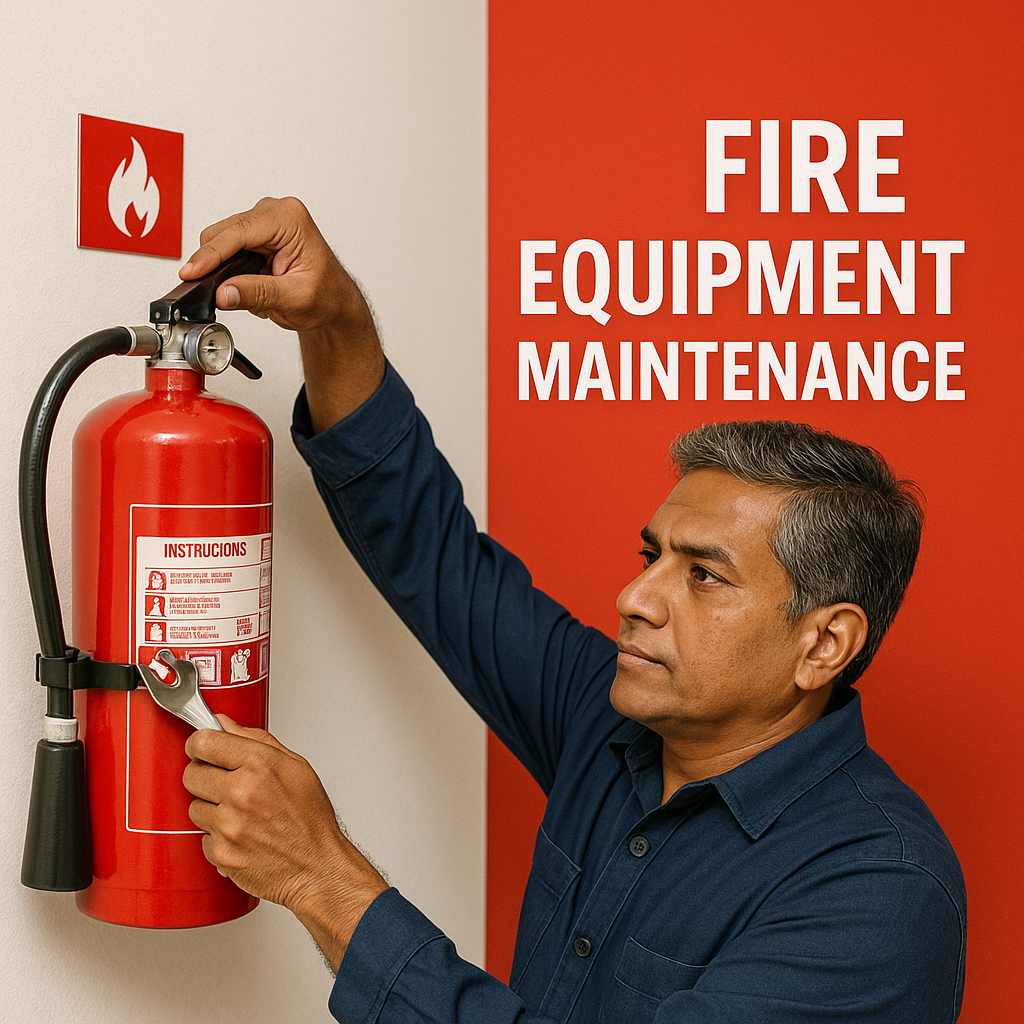Why Regular maintenance of fire equipment is Non-Negotiable
do you prioritize the maintenance of fire equipment? We will all agree that the risk of fire is an ever-present concern in our city. While installing fire safety equipment is a crucial first step, its ongoing maintenance is paramount to ensuring true safety and compliance. Neglecting this critical aspect is not just a gamble with property and lives, but also a direct violation of legal mandates enforced by the Kolkata Fire & Emergency Services.
For businesses and building owners, understanding that fire equipment maintenance is a continuous investment, not a one-time expense, is fundamental. The lifespan of safety is directly proportional to the diligence with which these life-saving tools are cared for.
The Grave Consequences of Neglect of your fire quipments
Ignoring or deferring fire equipment maintenance can lead to catastrophic consequences:
- Failure to Operate in an Emergency: The most obvious and devastating outcome is equipment malfunction when a fire breaks out. A discharged or depressurized extinguisher, a clogged sprinkler head, or a silent alarm can mean the difference between a minor incident and a major disaster, leading to extensive property damage, injuries, and tragic loss of life.
- Increased Risk to Occupants: Non-functional safety equipment places every individual within a building at significantly higher risk. Delayed warnings or ineffective suppression efforts can trap occupants and hinder safe evacuation.
- Legal Ramifications: The Kolkata Fire & Emergency Services, under the West Bengal Fire Services Act, 1950, and its subsequent amendments and rules (including the Fire Prevention and Fire Safety Rules, 2003), mandates regular maintenance and inspections of fire safety installations. Section 11C of the Act specifically requires owners and occupiers of high-risk buildings to provide and maintain fire prevention and safety measures in good repair and efficient working condition. Failure to comply can result in hefty fines, legal action, and even the closure of premises. Obtaining and renewing a Fire Safety Certificate often hinges on demonstrable proof of regular maintenance.
- Invalidated Insurance Claims: Many insurance policies include clauses that require a certain standard of fire safety preparedness, including functional and regularly maintained equipment. In the event of a fire, if it’s found that equipment was poorly maintained, insurance claims could be denied or significantly reduced, leading to crippling financial losses.
- Business Disruption and Reputational Damage: A fire incident, especially one exacerbated by faulty equipment, can lead to prolonged business downtime, loss of customer trust, and severe reputational damage that can take years to rebuild.
The Kolkata Angle: Mandated maintenance of fire equipment safety
The Kolkata Fire & Emergency Services is clear: fire safety is not optional. The regulations stipulate that owners or occupiers of buildings, particularly high-risk ones, must not only install appropriate fire prevention and safety measures but also ensure they are consistently maintained in perfect working order. This includes:
- Regular Inspections: Periodic checks by qualified personnel are essential.
- Fire Safety Certificate: Businesses are required to obtain and often renew a Fire Safety Certificate, which necessitates that all fire safety installations are functional.
- Mock Drills: For high-risk buildings, annual mock fire drills are mandated to ensure preparedness and the functional readiness of equipment and staff.
These legal requirements underscore the non-negotiable nature of fire equipment maintenance in the city.
What Does a Comprehensive Maintenance Plan corver?
A robust fire equipment maintenance plan is multifaceted and should be carried out by competent and certified professionals. Key components include:
- Visual Inspections: Regularly checking for physical damage, corrosion, leakage, and ensuring equipment is unobstructed and accessible. This includes checking that pressure gauges on extinguishers are in the operable range.
- Pressure Checks and Refilling: Fire extinguishers need periodic pressure testing and refilling as per manufacturer guidelines and relevant Indian Standards to ensure they will function effectively.
- Functional Testing: Regularly testing fire alarm systems (including smoke detectors, heat detectors, and manual call points), sprinkler systems, fire pumps, and emergency lighting to ensure they operate as intended.
- Hose Reel and Hydrant Maintenance: Inspecting fire hoses for wear and tear, ensuring hydrant valves are operational, and checking water pressure and flow.
- Record Keeping: Maintaining a detailed logbook of all inspections, tests, maintenance activities, and any corrective actions taken. This documentation is crucial for compliance and insurance purposes.
- Staff Training: Ensuring that designated staff are trained in the basic operation of fire equipment and emergency procedures.
A Continuous Investment in Safety and Peace of Mind
Viewing fire equipment maintenance as an ongoing operational cost, rather than a burdensome expense, is a shift in perspective that reaps significant rewards. It is an investment in the safety of people, the protection of assets, and the continuity of business. In Kolkata, where the vibrancy of life and commerce is ever-present, ensuring the reliability of your fire safety measures through diligent, regular maintenance is not just a good practice – it’s a fundamental responsibility and a legal imperative. Don’t wait for a tragedy to highlight the importance of what should be a non-negotiable aspect of your safety protocol.
To Know more , Just book a free consultation with us

